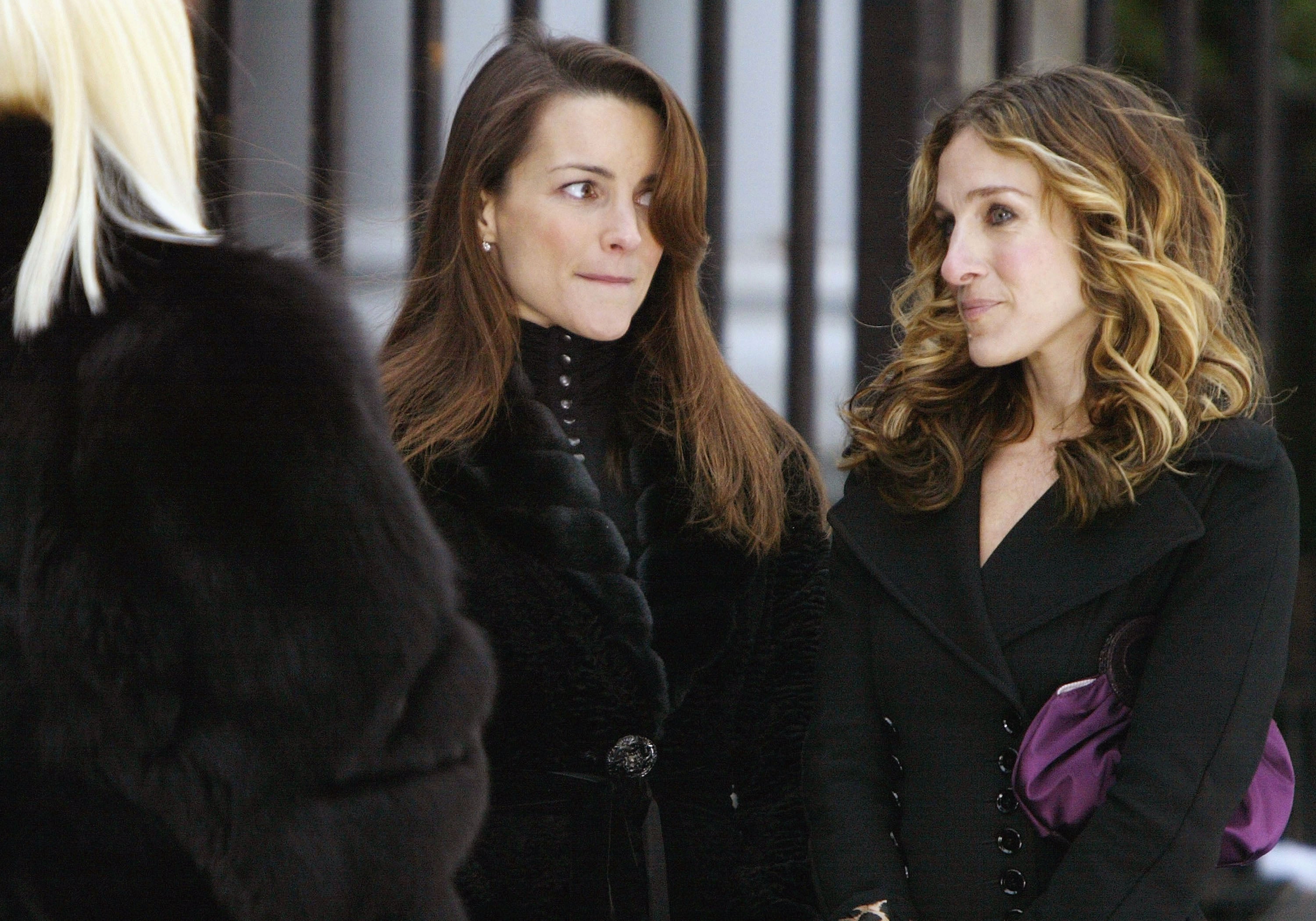SATC's new series must look beyond the original show's narrow view of sex
Times have moved on since Sex and the City first aired. But with the reboot the series needs to do more than bring straight, wealthy, female sexuality to the screen, writes Beth Johnson

When Sex and the City first aired in 1998, its depictions of female sexuality were frank, exciting and deliciously new. Featuring formidable female characters – Carrie, Samantha, Miranda and Charlotte - the show explored life and love in New York City, bringing female sexuality to the small screen like never before.
Writer Patrick McLennan recently called the show “era-defining” in the Radio Times, noting its focus on female empowerment, and indeed, it was – and remains for many – an important feminist show. It broke ground through its unapologetic representations of female sexuality, handling masturbation, dirty talk, and cunnilingus, as well as single, couple and throuple sex – remember Samantha’s famous line: “I’m try-sexual. I’ll try anything once”? Its storylines also engaged with issues of infertility, single parenthood, domestic abuse and grief.
After it went off air in 2004 after six seasons, there proved to be a lasting appetite for the show, which inspired two feature films. These, it seems, did not satisfy fans, and it has recently been announced that the show will be revived for ten half-hour episodes under the name And Just Like That…
However, the landscape of sex and sexuality has shifted significantly over the last two decades, and to remain relevant, the reboot will have to shift with it. The key characters – Carrie, Charlotte and Miranda (minus the indomitable Samantha) – will be in their 50s, and while this offers up some strong narrative potential, I worry it’s not enough.
Sex and the contemporary small screen
Society has come a long way in 20 years. While romance never goes out of fashion, women’s sexuality and how it’s represented on screen has moved on, and rightly so. As the writer Sanjana Varghese noted in the New Statesman, despite its feminist draw, Sex and the City is “outdated, wealthy and white”. Recent shows such as The Bisexual (2018), I May Destroy You (2020), Normal People (2020), Fleabag (2016) and I Love Dick (2016) have explored new depths of female sexuality on screen, tackling key issues of desire, identity, intimacy and rage. While overt displays of sexuality are ever present, the rendering of sex and female sexuality is now more diverse, complex and, arguably, interesting.
Small-screen sex has shifted from mere spectacle or punchline to thoughtful facet of a more three-dimensional character: from being “sassy”, and sometimes self-indulgent, to being knowing and self-reflexive. In Michaela Coel’s groundbreaking I May Destroy You, sex is something that brings issues of consent to the surface, forcing Arabella (played by Coel) to consider who she is, how she is changed by her experience, and who she wants to become. In Fleabag, sex and desire are central in showing dramatic power at work – and knowingly so. Some of Fleabag’s best lines include: “I spent most of my adult life using sex to deflect from the screaming void inside my empty heart,” and "I’m not obsessed with sex. I just can’t stop thinking about it. The performance of it. The awkwardness of it. The drama of it."
I’m not arguing that in the reboot the central characters should be plunged into poverty or pretend to be anything other than white
Sex and stratification
While contemporary depictions of sex often leave nothing to the imagination, female sexuality has always had an unknowable quality about it – after all, most female pleasure isn’t as visible as an erection. While Sex and the City arguably imbued sex with a glamorous (and expensive) commercialism – dressing for sex, branding sex, commodifying sex – sex and indeed sexuality were stratified. The women at its core were well-dressed, well-heeled, and above all, wealthy. While there was – and arguably remains – a visual pleasure in the fictitious freedom of the four friends and their sexual exploits, their privilege as slender, white, middle-class women afforded them a power and visibility closed off to others. Their desirability was not questioned. As the cultural theorist Richard Dyer (1997) explains: “There is something at stake in looking at, or continuing to ignore, white racial imagery.”
I’m not arguing that the reboot should see the central characters plunged into poverty or pretend to be anything other than white. What I am suggesting, though, is that their prevailing ignorance of their privilege needs to change. The mode of feminism they represented in the 1990s is, in many ways, outdated.
#MeToo, Black Lives Matter and #LoveWins (about the legalisation of gay marriage), among other hard-fought movements, have restructured the sexual and social landscape and the stories that we tell about it.
It will, of course, be fascinating to see how Carrie, Miranda and Charlotte navigate the modern world – its visual scrutiny and social media, its new feminist and political agendas, their psychical and physical shifts, and their bourgeois, (hetero)sexual fulfilment. Ultimately, And Just Like That… will need to tread a fine line, taking a different and more conscious approach to sex and sexuality, if it hopes to impress audiences (both new and old), remain relevant, and compete in a market that is now saturated with small-screen, big-idea sex.
Beth Johnson is an associate professor in film and media at the University of Leeds. This article first appeared on The Conversation.
Join our commenting forum
Join thought-provoking conversations, follow other Independent readers and see their replies
Comments



Bookmark popover
Removed from bookmarks